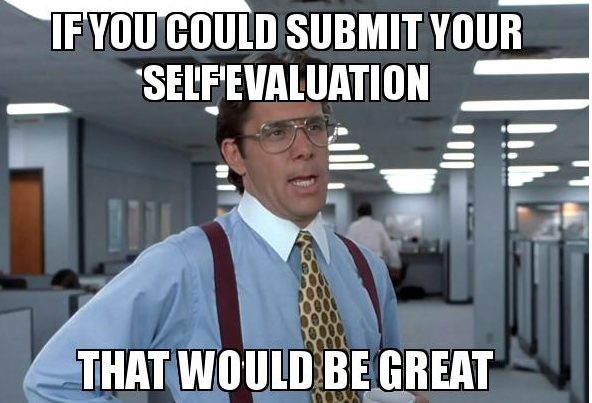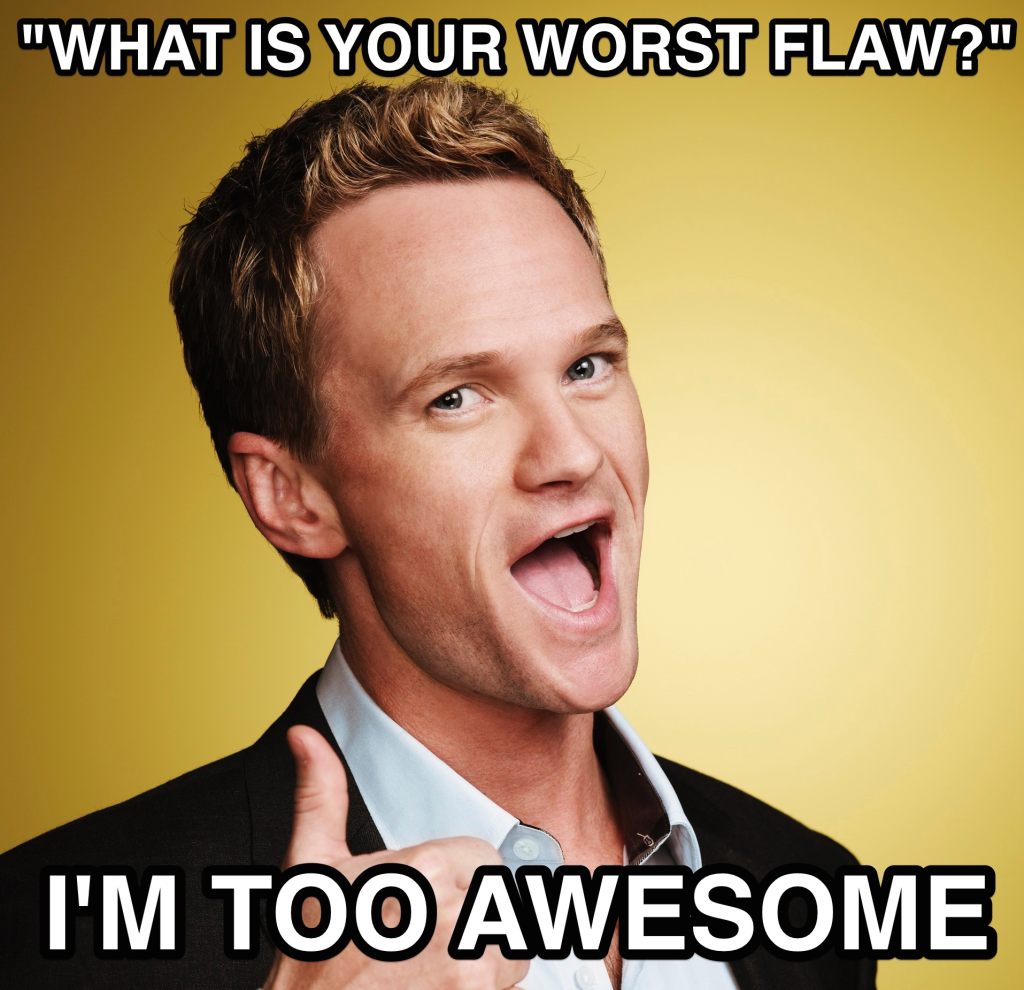Why self-evaluation is supposed to be challenging
I think it’s fair for us to acknowledge right off the bat that, for most of us, writing self-appraisals or self-evaluating is a pretty awful experience. Performance reviews or evaluations are, for the most part, a fairly stressful time. No matter how well you feel you performed over the period we all get anxious prior to the session as we attempt to anticipate what our managers really think of us and the work we have done, and self-evaluations do little to make the process any more enjoyable.

It’s part of my role to extol the importance of the review process to my colleagues and why it’s valuable and why you need to put a lot of thought into it, but that doesn’t mean I don’t find it equally challenging and indeed frustrating. There are a plethora of articles on the “why” of this frustration and people spend a lot of time considering all manner of reasons/excuses for this, from not understanding the reason for the self-appraisal all the way through to my personal favourite “I’m too busy”. There is some truth in all of those reasons. My perspective is that it’s supposed to be difficult. The ability to be able to introspect and recognise your strengths and weaknesses accurately and honestly is something that we are, as a species, fairly egregious at.
Psychologists have even coined a term to demonstrate just how bad we are at it. For those of you who aren’t familiar with the Dunning-Kruger effect it’s definitely worth further reading about, but in very simple terms it states that people with low ability in a specific task tend to overestimate their ability. You can find practical examples of this everywhere; most people for example believe they are above average drivers, have above average intelligence, or believe they are much funnier than they actually are. This cognitive bias is literally everywhere and if you have followed US politics in the last decade at all, President Trump was basically the embodiment of the Dunning-Kruger effect.

If you are an HR or Talent professional, you’ve met this person. You either interviewed them or you sat in on their performance review where they basically dislocated their shoulder for an hour from patting themselves on the back. No one likes that guy. Don’t be that guy.
So why is it supposed to be hard? Well, because that's how we learn and that’s how we can improve. If you score yourself perfect marks on your review you are basically looking at yourself professionally and saying, I’m good exactly like I am and I don’t need to or want to improve, which is obviously a big problem. In people's terms, this is the designer who didn’t want to pick up a new tool because the one they know does what they need it to, and in 5 years' time when they are still designing using Dreamweaver they wonder where the design world went to. In business terms, this is basically Nokia, who dominated the mobile phone space a few decades back and is now virtually an anachronism. They did inspire some good memes though.

It’s hard to acknowledge that we constantly need to keep challenging ourselves, and it’s harder still to both recognise and accept when there are areas we can improve upon. If you can make peace with your flaws and development areas you can begin to work towards improving them. Don’t think this will be easy either: the human brain is basically the most complex thing in the universe we know of and for the most part, we have very little idea how it works, so if you struggle to understand yourself and your decisions and shortcomings you should recognise that this too is part of your growth.
“Don’t tell yourself I shouldn't need to do that to motivate myself. What do you know about yourself? You are on the one hand, the most complex thing in the entire universe and on the other, someone who can’t even set the clock on your microwave. Don’t over-estimate your self-knowledge.” — Jordan Peterson
Self-evaluation is never going to be easy, and you are never going to fully understand yourself. Combining those difficult internal deep dives with feedback from colleagues, friends, and managers can allow you to develop a more complete view of yourself both personally and professionally and can serve as a catalyst for your continued growth.
Let’s make the commitment to spend a few extra minutes in that uncomfortable introspective zone next time we have the chance and use those sessions as a foundation to drive our development.
